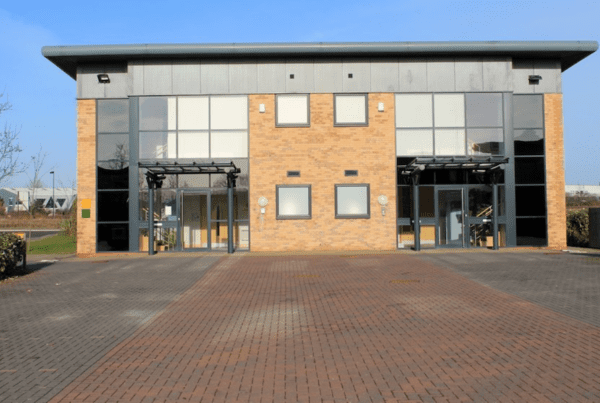
The past few years have been tough for many businesses, with most just trying to keep their doors open.
Still, other businesses thrived. In fact, a Hamilton Project analysis of the business sector during the COVID- 19 outbreak found there were over 450,000 more establishments operating by the end of 2021 than before the pandemic began.
If your company is one of these, you may now be looking to grow or expand your business footprint. Whether you are opening new locations, oering new products or services, or enhancing or adding to your current property, there are plenty of opportunities available to improve what you’re already doing.
But upgrading your business is not a decision to make lightly. There are many factors that you must rst consider and prepare for, especially with challenges related to the economy and insurance aordability.
Here are six tips for every business owner thinking about expanding.
1. Prioritize safety
There is nothing more important than keeping your employees and customers safe. If you plan to do any construction on your business property, work with a reputable contractor who understands job site coverage and doesn’t have a record of serious losses or accidents.
Collaborate with your insurance agent to ensure proper risk management precautions are in place while work is being done on your business premises. See that all work is performed to current building standards.
If you plan to introduce new products or services, nd out if there have been any past product issues or recalls in that niche and train employees on the new products and operations. Keep in mind that your business auto insurance might change if your expansion includes corporate travel.
2. Budget for new business costs
Of course, expanding your business creates new revenue opportunities, but it also likely means new expenses. For example, increasing the size of your business premises or purchasing additional property will bring new maintenance expenses and costs related to hiring and training new sta.
There are also additional insurance expenditures to be aware of. The property insurance market is signicantly more restricted than in past years, with considerably higher rates and limited coverage. Any changes to your business facilities or equipment could make them more challenging or more expensive to insure.
You should also consider what new insurance policies you will need to align with any new products or services you’re offering.
For example, you may need cyber liability insurance to help protect against the risks that come with new business technology or managing customer data. If you are in the production, shipping or sales fields, you may have new needs and costs for cargo or warehousing coverage.
Work closely with your insurance professional to upgrade your coverage to match your expansion.
3. Know your value
Evaluate any physical changes to your business, such as property upgrades or new equipment or inventory. Make sure these changes are reected in your current value of insurance coverage.
You should also discuss changes and updates with your insurance agent to ensure your business insurance policies adequately cover all your company’s assets. You don’t want to be caught short on insurance if a disaster happens; it could lead to high out-of-pocket expenses as well as penalties for being underinsured.
Having a current business valuation is especially important because insurers base their willingness to cover a customer on the potential cost of claims. You may have to shop around or work with several dierent carriers to secure the right level of coverage to help protect your growing assets.
4. Modernize your processes
Expanding your business is the perfect chance to update inecient or obsolete systems and processes. With emerging technologies to help business owners improve operations, it’s worth the time and energy to evaluate which ones may be right for your business and if they are worth the cost to implement.
If you do decide to upgrade your systems or processes, know that they may require changes to your liability or property insurance. Even your workers’ compensation insurance could be aected. If you move toward smart buildings, smart machinery or robotics, you will have specic cyber risks to consider as well.
On the plus side, modernizing your re suppression and other safety and security systems can help you obtain better insurance rates.
5. Invest in your people
When you add to your business footprint, you need to have the right people in place to help things run smoothly. Hiring and training are costly, but risk management depends on adequate stang and educated personnel.
Not having the proper sta puts other workers at risk of burnout or workplace injuries. This can increase your errors and omissions or other liability exposures. And keep in mind that your hiring, termination, and wage and hour practices will be under broader scrutiny as you expand your business. Doing things right on the personnel side is imperative.
Your insurance professional can help you evaluate what your insurance needs will be if you augment payroll so you can adequately address any potential new exposures. Your agent or broker may also oer safety and HR training resources that you can use to improve sta performance and employee morale.
6. Use outside resources to reduce risk
Your agent or broker may also oer enhanced risk management services. These include site visits and evaluations to improve your worksite safety, and legal services to help you in the event of an accident or a mistake that harms someone. Your agent or broker can work with you on nding the right resources to t your industry and strategic growth plans.
Think of your insurance professional as a member of your team. They bring knowledge of contract terms that aect your business’s liability, familiarity with your industry and local market, and access to valuable resources that may otherwise be dicult or inconvenient to nd. Take full advantage of this expertise as you grow your business and maximize both prots and safety.




